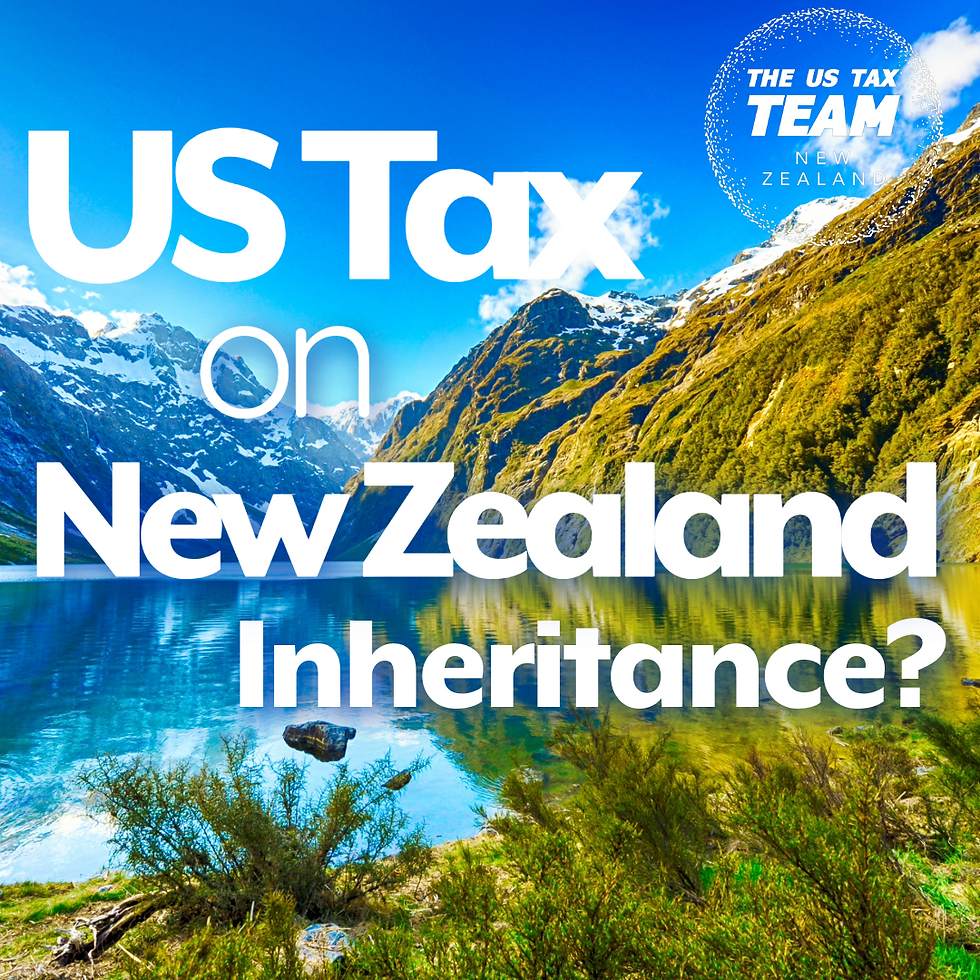KiwiSaver and US Tax - Do I need to report?
- David Tzimenakis
- Oct 4, 2023
- 3 min read
One of the most common issues facing US citizens in New Zealand, is the treatment of KiwiSaver.
Many clients come to us asking the question “I’ve heard my KiwiSaver is a trust? Is this true?”.
This is indeed true, however the actual reporting required to the IRS can vary from person to person, dependent on certain factors.
For most US citizens who hold KiwiSaver, it does mean that some US tax reporting is required to the IRS each year. This also covers US citizen children with a KiwiSaver account unfortunately. One of the main issues with holding KiwiSaver, is that it cannot be closed without certain conditions being met (such as moving away from New Zealand). To attempt to change these rules, I did submit a petition to the New Zealand Parliament in 2023, however this has not resulted in any change unfortunately.
So, why is KiwiSaver reportable to the IRS?
To begin with, we must factor in that a “tax deferred account” is usually only tax deferred in the country it was established. Like the deferred tax treatment of a Roth IRA can be disregarded in New Zealand, the same applies to KiwiSaver, in that the IRS doesn’t recognise its beneficial tax treatment here.
The system in the US which provides a provision for tax deferred retirement funds is mainly contained in Sec. 401 of the US tax code, which we use to determine if a plan is qualified or not, few foreign pensions qualify under this code section. The implication of this is that the foreign pension (Kiwisaver) can be taxable from the very first contribution, or growth in the account.
Foreign Pensions as Trusts
So, as we’ve discussed above, we already know that some reporting is required to the IRS for KiwiSaver. But, why trust reporting?
Firstly, all KiwiSaver (and similar accounts such as UniSaver) accounts are held in trusts in New Zealand.
But, is it a reportable trust, or just a pension?
In this context, we can make reference to Section 402(b) of the United States tax code, which outlines the criteria determining whether a plan qualifies as a trust for US tax purposes. This specific section of the tax code offers definitions pertaining to Employees Trusts, thus influencing the tax treatment of such plans.
Once we have examined Section 402(b) and determined whether our superannuation plan meets the criteria for classification as a trust, we can subsequently delve into the tax implications. This is where we attempt to apply the same regulations that govern US retirement accounts, focusing on their eligibility for tax deferral. The key assessment here revolves around whether the foreign pension plan is categorized as "discriminatory" or "non-discriminatory." This assessment hinges on the extent of coverage provided to highly compensated employees who are members of the plan.
To provide a general overview, in the case of non-discriminatory pension plans, employees are typically required to report employer contributions as current income but can postpone taxation on pension earnings until withdrawal at retirement. Conversely, in the case of discriminatory plans, highly compensated employees may find themselves obligated to report both contributions and earnings as current income. An advantage of this approach is that it increases the "basis" (the pre-taxed amount), potentially mitigating future tax implications upon withdrawal (not considering any US-NZ tax treaty considerations).
The complexity escalates slightly when we factor in the concept of whether a pension plan is "vested" for tax purposes and whether the plan's funding originates from employer and/or employee contributions.
The short version of all of this, is that in most cases, KiwiSaver does need to be reported as a foreign trust for US taxpayers. The taxpayer is usually treated as “grantor” of the foreign trust, which generally means the “owner” of the trust.
Of course, when you invest in KiwiSaver, you don’t own the whole KiwiSaver trust, but instead you own just your portion of it (your contributions and the growth).
Tax Filing Implications
Feeling lost? Its understandable, and complicated.
In summary, the above means that for most US citizens who hold KiwiSaver, reporting is needed each year using Form 3520 & 3520-A. In addition, depending how the KiwiSaver funds are invested, further reporting may be needed on Form 8621.
Despite all of this, KiwiSaver can still be a wise long term investment for US citizens, keeping in mind the minimum 3% employer contribution. However, financial advice should always be sought before setting up a KiwiSaver.
Here at the US Tax Team, we believe that your tax professional needs to understand these issues not just on the surface, but deep into the actual tax laws that create tax filing obligations.
If you’re concerned about KiwiSaver US tax implications, contact us today, info@usatax.nz.




